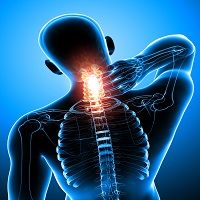Article
Degenerative Cervical Myelopathy: Does Age Matter?
Author(s):
Clinicians often discourage older patients with degenerative cervical myelopathy from pursuing surgery, worrying that lingering pathology, comorbidities, reduced physiological reserves, and age-related spinal cord changes will delay recovery.

Clinicians often discourage older patients with degenerative cervical myelopathy (DCM) from pursuing surgery. They worry that lingering pathology, comorbidities, reduced physiological reserves and age-related spinal cord changes will delay recovery. Yet DCM's incidence increases with age, and many elders might benefit from surgical intervention. A multinational team of researchers, concerned that concerns about age might be inflated, studied age's contribution to surgical outcome. Their study, published ahead-of-print in the Journal of Neurology, Neurosurgery, and Psychiatry, provide information that can help decision-making.
These researchers enrolled 479 DCM patients into a prospective international study at 16 centers worldwide. They divided participants into 2 groups, a younger group (<65 years) and an elderly (≥65 years) group.
Approximately 75% of participants were younger than 65 years and and the remainder were older. Elderly patients' health in the preoperative period was worse than younger patients', and the tended to have lower functional statuses.
Approximately 65% of younger patients underwent anterior surgery. Elderly patients, however, were more likely to undergo posterior surgery, with roughly 60% having this approach.
Elderly patients had a greater number of decompressed levels (a factor that the researchers indicate may explain the greater likelihood of posterior surgery) than younger patients. Elderly patients seem ed to have greater pathology requiring more extensive surgery, but all patients regardless of age achieved spinal cord decompression. Elderly patients stayed in the hospital an average of 3 days longer than younger patients, but rates of perioperative complications were similar.
At 24 months after surgery, younger patients tended to have made more gains in functionality than elderly patients. The researchers suggest that elderly patients may not be able to translate neurological improvements into functional recovery due to age related spinal cord changes, or comorbidities that also impair functioning.
The authors conclude that older age is an independent predictor of functional status in patients with DCM, but surgical decompression helps them achieve functionally significant improvement.





